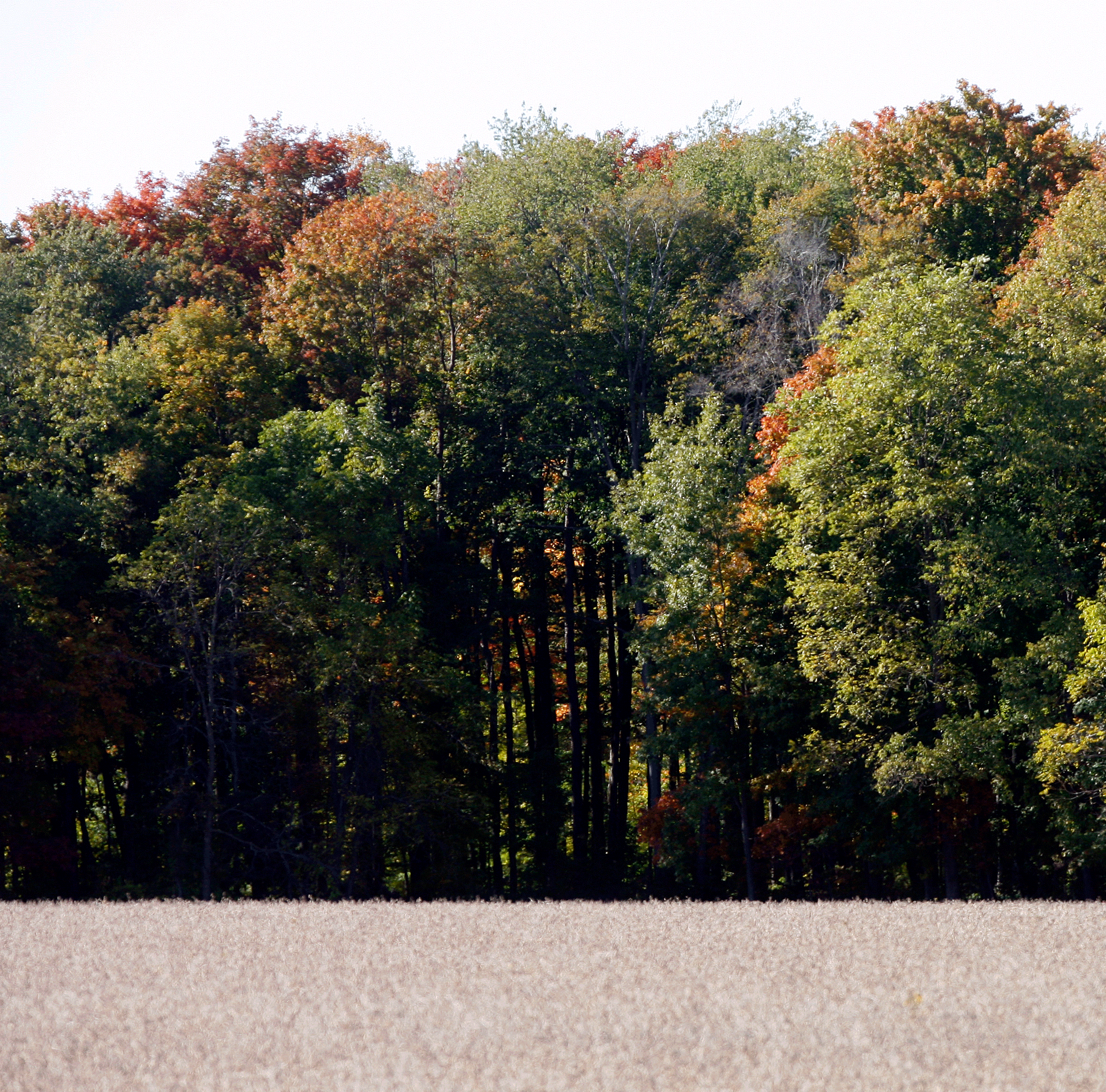The woodlot debate
CHATHAM-KENT’S COMPROMISE
THE CONFLICT OVER woodlots in Chatham-Kent has effectively been diminished with the introduction of a new woodcutting policy. This policy was introduced in February following more than a year of disagreement between farmers and the municipality.

HISTORY
In October 2012, a bylaw was first proposed in Chatham-Kent as a way to preserve the tree cover in the county. The proposed bylaw would have prohibited land clearing of woodlots greater than half a hectare (1.25 acres) in size and was met with outrage from many farmers owning land in the area.
“There was a lot of activity clearing woodlots when the issue first came out,” says Harry Lawson, a Grain Farmers of Ontario Delegate for District 2 (Kent) who farms in Thamesville. “Many farmers felt the bylaw was taking away their rights and was an expropriation of their land. Many people might think it was an easy fix, but only if they didn’t have any investment in the land.”
The counties of Essex and Chatham-Kent are the only counties in Ontario without a woodcutting bylaw that limits the number of trees which can be felled. Chatham-Kent has the least amount of tree cover in the province, with just 4.5 percent, including the Rondeau and Wheatley Provincial Parks and Moravian First Nations forest covers. Not including these areas, forest cover stands at just 3.97 percent.
A spike in forest cover during the 1990s and early 2000s was a result of tree and windbreak planting incentives in place at that time; however, recent declines in plantings have corresponded with a lack of new incentives and regulations.
Tom Beaton, Manager of Parks, Cemeteries and Horticulture in Chatham-Kent, says that without a by-law, natural forest cover is vulnerable and conservation work done in the past can be quickly undone.
Although there has been an established greening program in the community since 2007, Beaton says it is not comprehensive. The Greening Partnership Program between the Municipality of Chatham-Kent and the Lower Thames Valley Conservation Authority focused on tree planting, habitat restoration, and riparian buffer creation efforts in Chatham-Kent.
Lawson says that due to the soil type and unique climate, most land in Kent County is farmable, making producers more likely to remove woodlots.
FUTURE
The potential bylaw, and the actions of the farmers against it, received media attention that promoted support for both sides – creating a rift between the two parties. As a result of the political concern created by the issue, the decision was made by the Chatham-Kent council to create a woodcutting policy instead of a bylaw. The new policy is designed to work with the existing greening program.
“Between 1,200 and 1,500 acres of trees disappeared in Chatham-Kent between October 2012 and the summer of 2013 because of the panic created by the proposed bylaw. Since the threat of the bylaw has been diminished, land clearing has been greatly reduced,” says Beaton. “In the past, we’ve had good results in partnering with the community. We felt a policy would open the door to many opportunities while a bylaw would close doors to future opportunity.”
The policy includes making resources available to landowners so that they can make educated decisions about woodlots on their property, teach good forestry management, and show the value of a woodlot as a commodity. It includes a management strategy and an outreach program, for which the council has received funding from the Ministry of Environment. The council also supports an education campaign to further educate land owners. The goal of the policy is to allow farmers to see the sustainable, long term value of a woodlot compared to other farming commodities.
There are no enforcement provisions within the new policy. The council encourages farmers to take advantage of the resources and services offered if they are considering clearing any treed areas to determine the value of the land as a woodlot and as farmland.
Beaton says there has already been interest in the resources being offered to educate landowners and promote the value of woodlots, particularly in the services of the newly-hired professional forester. Donald Craig is a registered professional forester and has been hired by Chatham-Kent to provide free services to woodlot owners in the area. These services include assessing woodlots, marking trees to harvest according to good practices, and providing assessments and suggestions to improve woodlots.
“It’s a society-wide issue,” says Lawson. “The policy is an effort to create goodwill with the farming community and give help with managing woodlots. A professional forester can advise landowners if the woodlot is worth keeping, how to improve it, and give ideas on good management practices. The policy is not going to stop land clearing, as some woodlots aren’t worth saving and sit on good farmland.”
The measures contained within the policy are already in effect to some extent; however, the exact language of the policy was still being worked out at press time. •

















